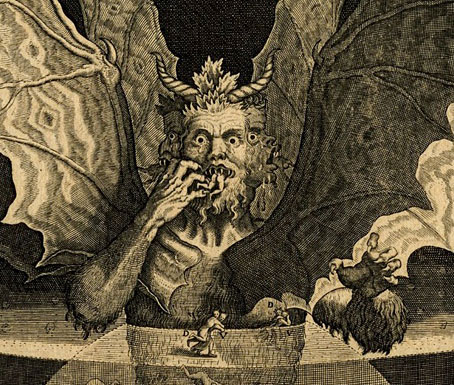Friday
When in yesterday’s post I compared the events of January 6 with Shakespeare’s Julius Caesar, I omitted one of the most important scenes. An Editorial Board column by political scientist John Stoehr reminded me of it.
Watching the testimony of the four Capitol Police officers, Stoehr noted that they were most distressed by GOP betrayal:
The painful part, a sentiment expressed by each of them, came later when they realized everything they believed in—duty, sacrifice, loyalty and honor—meant nothing to these Republicans. Over and over, testimony kept returning to a variation on a familiar theme: betrayal.
Again, Officer Fanone: “My law enforcement career prepared me to cope. … Being an officer, you know your life is at risk whenever you walk out the door, even if you don’t expect otherwise law-abiding citizens to take up arms against you. But nothing, truly nothing, has prepared me to address those elected members of our government who continue to deny the events of that day, and in doing so betray their oath of office.”
The most painful moment in Julius Caesar is when Caesar realizes that a man he thought was his friend is amongst those killing him. “Et tu, Brute! Then fall, Caesar,” he cries.
The betrayal is so shocking that, in his own response to the historical event, Dante places Brutus is the lowest circle of hell, along with fellow conspirator Cassius and Judas Iscariot. The frozen environment captures the coldness of their hearts, and their being devoured by three-headed Satan—one mouth for each—shows the extent to which evil has engulfed their souls:
Each mouth devoured a sinner clenched within.
Frayed by the fangs like flax beneath a brake;
Three at a time he tortured them for sin.
But all the bites the one in front might take
Were nothing to the claws that flayed his hide
And sometimes stripped his back to the last flake.
“That wretch up there whom keenest pangs divide
Is Judas called Iscariot,” said my lord,
“His head within, his jerking legs outside;
this side the Centre: 7.30 a.m. at the Antipodes
As for the pair whose heads hang hitherward:
From the black mouth the limbs of Brutus sprawl—
See how he writhes and utters never a word;
And strong-thewed Cassius is his fellow-thrall.
Shakespeare is kinder to Brutus than Dante is, seeing him more as one misled by Cassius than evil. Furthermore, Brutus has pangs of conscience, if that’s how we are to read the visitation of Caesar’s ghost.
I wouldn’t put those Republicans who have betrayed their oath of office in Hell’s lowest circle, although it’s worth noting that Dante’s punishments are always self-inflicted. Brutus is there because he has denied his God-bestowed humanity to an extreme degree, and there are Republicans denying the suffering undergone by the Capitol police. Trump may assure them that they will face no accountability for lying, but lying rebounds upon the liars, hollowing them out. A price is paid, whether or not they are ever held to account by earthly authorities.
In Dante’s vision, one avoids Inferno and achieves Purgatory if one recants. We’ll see if any of those GOP members currently intent on denying the events of January 6 face change their tune.
